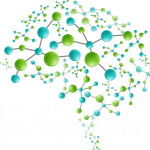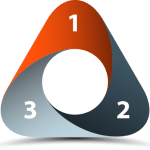The study of Chronobiology dates back to the 18th century, when astronomer Jean Jacques d’Ortous de Mairan studied the daily leaf movements of the Mimosa plant. In his experiments, he was able to show that the leaves of the Mimosa continued to swing in a way that appeared to be influenced by the earth’s 24-hour light/dark cycle, even when they were isolated in permanent darkness.
This correlation between time and plants continued in 1751 when Swedish botanist Carl von Linné created a flower clock byarranging various species of flowering plants in a circular pattern. By adhering to specific timing and placement the clock was able to indicate the time of day by the flowers that were open at each given hour.
Over time, renowned scientists like Georg Christoph Lichtenberg, Christoph Wilhelm Hufeland and finally, yet importantly, Charles Darwin reported similar rhythmic phenomena. Despite these numerous findings, it wasn’t until the 20th century that the scientific research of Chronobiology officially began, ranking Wilhelm Pfeffer, Erwin Bünning, Karl von Frisch, Jürgen Aschoff, Colin Pittendrigh, and Arthur Winfree among its pioneers.
Prior to the 1960s, chronobiology, biological rhythm research, and sleep research were largely independent areas of study, and consisted of very little overlap. In the early 1970s, interactions between the areas of chronobiology and sleep research increased, and chronobiologists began correlating biological rhythms and sleep patterns.
For years, chronobiological studies continued extending beyond the interactions with sleep cycles and delving into a plethora of areas of specialty regarding health and medical approaches.
Then in 2017, the study of chronobiology made world news when researchers won the Nobel Prize in Physiology or Medicine for their findings on circadian rhythms and how our inner clock adapts our physiology to the dramatically different phases of the day.
Over the years, the knowledge of chronobiology and the surrounding research has expanded and the focus of one branch of chronobiology, known as chronopharmacology, or chronotherapy, has become a key focus to many in the medical and health professions.




